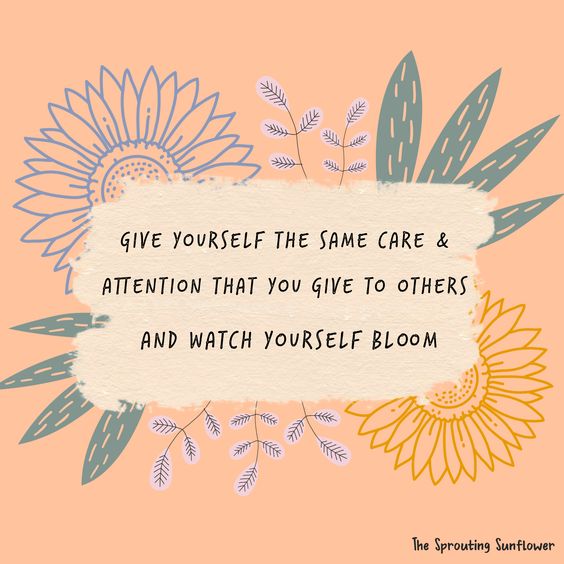
Today, we are giving you Part II of Dr. B‘s Q&A segment for Mental Health Awareness Month. Below the break, you will find Dr. B’s insightful answers to your questions about relationships, depression, and social anxiety, among others.
Thank you so much to those who sent in questions and a very, very special thank you to Dr. B for her thoughtfulness and care in answering them.
Disclaimer: Providing psychoeducation/ answering mental health-related questions does not constitute a therapeutic (doctor-patient) relationship. All questions and answers were provided anonymously to protect the confidentiality of the participants. If you or someone you know is in crisis call 911, go to your local Emergency Room or contact the National Suicide Prevention Lifeline at 800-273-TALK (8255).
Q: Why do I keep battling with myself that I’m wrong for leaving a 10-year abusive relationship?
A: The influence of abuse can persist long after the abuse has stopped. In clinical practice, it is common to see individuals who have been involved in controlling and abusive relationships internally struggle and question whether or not they made the right decision.
When the relationship ends, they offer comments like, “I know what they’ve done to me, but I still love them,” “I don’t know why, but I want them back”, or “I know it sounds crazy, but I miss them.” Often friends and family are puzzled when they hear these comments or witness their loved one returning to an abusive relationship. While on the surface this may be difficult to understand, it makes perfect sense from a psychological standpoint.
It’s important to remember that dating abuse or Intimate Partner Violence (IPV) is extremely complex. Leaving an abusive relationship is never easy. Many individuals are often tied to their partners due to finances, children, housing, disability, and even love. As we know, abuse is really about power and control. The abuser maintains power and control by breaking down the survivor’s sense of self-worth and agency in order to control them. Gaslighting is a very common abuse/manipulation tactic that often makes the survivor question their own thoughts and understanding of reality by discrediting the survivors as crazy, too emotional, or sensitive. A survivor wonders if they’re wrong or if they are making a big deal about nothing, all of which makes it harder to walk away or stay away.
Rationalization and justification play an integral role in one’s internal struggle far after the relationship is terminated. Abusive relationships are often steeped in deception from many influences including society, the abusive partner or ex-partner, and even oneself. We humans instinctively hope for brighter days ahead. Survivors of abuse repeatedly hope that “things will get better” in their relationship. In society, we’re told ‘never to quit, to hang in there, that anything can be accomplished.’
In this case, rejecting the aforementioned notion and leaving the relationship reflects acknowledgment and, on some level, some acceptance of the things one cannot change –including the behavior of another person. The reality, of course, is that you can’t stop the abuse—only an abuser can decide to change.
Love is complicated; it’s possible to be in love without being safe. Again, society tells us that “love is all you need” or “love conquers all.” This too can make it hard to walk away or stay away from a life you’ve built with someone, even one that’s toxic and unsafe. Love and hope, when paired with power and manipulation are tough to challenge.
In sum, the complexity of intimate relationships is nuanced and subjective however, everyone deserves to be physically and emotionally safe in their relationship. You are not alone in your battle; many survivors of abuse experience the same emotional ambivalence. Recovery is not about simply leaving, it’s about long-term safety, self-discovery, and accepting the support of others. We all need and deserve love but not at the expense of our own safety and security.
Please consider this answer as a general guideline. Some of the explanation may be appropriate and helpful while some may not apply to your specific situation. In many cases, you or someone else may need the help of a licensed mental health professional. If you have experienced trauma, I recommend seeking evidence-based psychotherapy and/or group support.
Resources are listed below or contact me Drbcares.org so that we can help you locate an LGBTQ+ affirming licensed provider in your area.
- The National Domestic Violence Hotline at 1-800-799-7233
- LGBT National Help Center Hotline at 1-800-246-PRIDE
- LGBTQ Domestic Violence Project at 1-800-832-1901
Q: How do you know if you are depressed or just overwhelmed?
A: Stress and symptoms of depression can affect you in similar ways. However, symptoms of depression are typically much more intense. Depression persists at least two weeks and causes powerful mood changes, some of which include intense feelings of sadness, hopelessness fatigue, sleep disruption, anxiety, etc.
Here are common signs of stress and symptoms of depression:
| Common Signs of Stress | Common Symptoms of Depression |
| Trouble sleeping
Feeling overwhelmed Problems with memory Problems concentrating Change in eating habits Feeling angry, irritable or easily frustrated Feeling burned out from work or school Feeling that you can’t overcome difficulties in your life Trouble functioning in class or in your personal life |
Withdrawing from other people (isolating)
Feeling sad and hopeless Lack of energy, enthusiasm, and motivation Anhedonia (no longer enjoy things you once enjoyed) Trouble making decisions Being restless, agitated and irritable Eating more or less than usual Sleeping more or less than usual Trouble concentrating Feeling nervous or anxious Trouble with memory Feeling bad about yourself or feeling guilty Anger and rage Feeling that you can’t overcome difficulties in your life Trouble functioning in your class, work or in your personal life Thoughts of suicide |
If you are concerned about your symptoms, take a depression screen at Mental Health America and contact a local mental health provider for services. The types of mental health providers are also listed on the Mental Health America. Feel free to reach out Drbcares.org if you are seeking to locate an LGBTQ+ affirming provider in your local area.
Q: How do I control my social anxiety?
A: Social anxiety is characterized as a persistent fear of one or more social situations in which the person is exposed to unfamiliar people or to possible scrutiny of others. The individual often fears that they will act in a way or show anxiety symptoms that will be embarrassing and humiliating. The fear of being judged and evaluated negatively by other people leads to these feelings. Here are some self-help tips on how to manage social anxiety:
- Remember everyone experiences anxiety. At some point or another, we all experience a little anxiety. Increased anxiety can be attributed to environmental influences (stressful life experiences) or other uncontrollable factors.
- Think about your thinking. Everyone has an internal dialogue – a constant stream of thoughts that affects mood and behavior. Social anxiety feeds on thoughts that exaggerate danger or foresee dire consequences. Tune in to your thoughts. What are you telling yourself when you feel nervous about entering a room? Thinking this way may be a habit. Good news, most habits can be changed. Contrary to popular belief, the antidote is not positive thinking but realistic thinking. Examine your anxiety-producing thoughts critically and modify accordingly.
- Breathe away anxiety. Whenever you start feeling anxious be mindful of your breathing. If it is shallow and rapid, consciously shift to slow abdominal breathing. Practice relaxation techniques including progressive muscle relaxation, mindfulness, deep breathing, and meditation. Also, include exercise in your routine.
- Shift your focus. Anxiety turns your attention inward. This is certain to increase your anxiety. Instead, focus your attention on the task itself. If anxiety continues to build, focus on neutral factors (different aspects of the room, color, and texture of the walls, carpet, etc.). The shift in focus will interrupt the anxiety cycle.
- Tolerate discomfort. Try not to avoid social situations; that will keep you stuck. Instead, push through and you will likely feel better about yourself when you go ahead and act on what you value.
- Tolerate uncertainty. You can’t control other people. The fact is, not everyone will like you and that’s okay. Sometimes your best bet is to go with the flow and learn to be gentle with yourself.
- Seek professional help if needed. Seek treatment from a mental health provider trained in evidence-based treatments for social anxiety.
Q: How can I break-up with someone who is bipolar?
A: This question seems to imply that there is a difference in the way that you should break-up with a person diagnosed with bipolar disorder than in the way you would break-up with a person who is not diagnosed with bipolar disorder. Breaking up with someone who is living with mental illness isn’t necessarily any different than ending a relationship with a person chronic or episodic physical illness. With that being said, depending on how the illness impacts their life and to the extent that their disorder is active, the stress of a difficult breakup could temporarily increase their symptoms.
Breaking up with a significant other can be stressful for everyone involved but there could be an added element of concern for safety. No matter how kindly you do it, the decision is going to impact that person’s life. While trying to be as sensitive as possible, it may be worth it to consider your answers to the following questions and modify accordingly. Before the tough conversation, ask yourself:
- Do you think that you’ll both be safe, post-breakup?
- What’s is your partner’s typical reaction to upsetting situations?
- To what extent is the disorder active or not well controlled (e.g., are they currently depressed, manic, actively hallucinating)?
- Does your partner have a support system?
- How has your partner been handling day-to-day stressors?
- Are they currently under pressure from work, school, family, or other health problems?
When breaking up with someone, be thoughtful, understand the illness, make sure there is some social support for them, contact emergency resources (e.g., 911, local ER) if you are concerned about safety. You should understand what the risks are and do your best to alert their support system, but do not send mixed signals or give false hope.
Of note, breaking up with a person living with mental illness should not look dramatically different from any other break up. Just like any other challenging goodbye, it’s important to treat your partner with compassion and respect and to communicate as clearly as possible. Consider that it is a person living with mental illness, not the disorder you are breaking up with; you are breaking up with someone who is simply not right for you and that is OK.
Q: What can you do for a family member you believe is schizophrenic but don’t want help? Are there free places to go and can you force them to go for more than 72 hours?
A: Often people who are close to a person diagnosed with schizophrenia are confused and unsure about the illness and their role in helping the person recover. They may be afraid of accidentally doing something that could make things worse. However, if the person does not want help then they have the right to refuse treatment.
Involuntary or assisted treatment means the individual can be treated without their consent in order to reduce the risk of serious harm to themselves or others or if there is a risk that their health will seriously deteriorate. In this case, the court and/or psychiatric providers will determine the course of treatment and mandated length of stay. This may be 72 hours, more-or-less, depending on presenting concerns and stabilizations of symptoms.
In order to help a family member who is diagnosed with schizophrenia, consider participating in a family psychoeducation program. This is a chance to learn about the illness, how to communicate better and how to deal with problems. If you cannot join a psychoeducation program, consider scheduling an appointment with a psychologist to learn more about schizophrenia and how you can help the person. This will give you the opportunity to learn to recognize and identify the early warning signs of relapse and assist with preparing a plan of action for what to do in the event of a mental health crisis. In your plan, always include contacting 911 or your local emergency resources to ensure the safety of all parties. Additionally, patient-family support groups are not only helpful, but they’re also essential; they can assist you in getting your loved one into treatment.
Try these organizations for help:
- The National Alliance on Mental Illness(NAMI) has an information helpline (800-950-NAMI), referral service, and programs for individuals and families. This may be a good resource for locating free residential treatment options for people who experience serious and persistent mental illness (SPMI) in your area.
- Your local psychiatric hospitals, community service boards, and universities generally run support groups.



